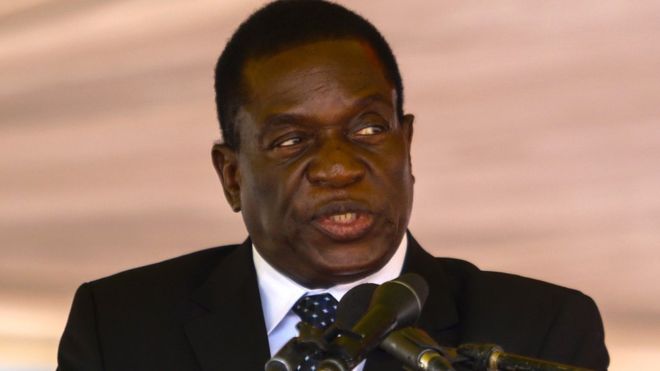Local authorities are not using the funds meant for devolution resulting in the money going back to treasury.
This was disclosed by President Emmerson Mnangagwa in Bulawayo last week during a meeting with local artists.
The president urged provinces to make use of the devolution funds to accelerate development.
In an interview with CITE, Minister of Finance and Economic Development, Professor Mthuli Ncube said the government could only urge local authorities to spend the money.
“We encourage local authorities to spend monies that were set aside for the devolution budget. It’s very important that those resources reach the people so we don’t want those funds to come back to treasury, but they should spend,” he said without naming these local authorities.
Prof Ncube noted that there was little time left before the year ends but hoped councils could implement certain development projects.
“I know there’s no good time left between now and year end they should try their best to allocate these resources and develop projects to support our people on the ground.
“Well it takes time to develop projects, naturally and we appreciate that but they should try their best to make sure the funds are utilised because we are coming towards the end of the year and people need projects to be done to improve lives on the ground,” said the finance minister.
He did not state how much was sent back but said for 2019, the treasury had allocated ZWL$700 million towards devolution and for 2020, increased the fund to ZWL$3billion.
“It’s a lot of money. We are critically aware that it takes time to implement projects but we really want local authorities to make use of these resources between now and year end,” Prof Ncube summed.
Reached for a comment, Bulawayo Progressive Residents Association (Bupra) coordinator Emmanuel Ndlovu said it was shocking to learn that local authorities were under utilising devolution funds.
He said faced with the evidence of service delivery collapse, the funds ought to have been deployed urgently and efficiently.
“Actually failure to spend funds is one of the inefficiencies in public sector accountability and someone must voluntarily resign because they have failed to discharge their mandate at a time when there are serious service delivery concerns and health hazards, with water pipes bursting all over,” Ndlovu said.
Ndlovu highlighted that local authorities should have set budgets long ago on how to disburse the funds.
“Someone was sleeping on duty because you can’t fail to spend in an economy like this when the value of money deteriorates daily. Someone should be answerable as to why the money was stored somewhere when residents have a lot of problems,” he said.
He suggested that local authorities should have reached out to residents’ associations for technical expertise, if they had no ideas on how to implement devolution.
“Within our structures, we have the expertise to advice councils especially on issues of planning, water sanitation and renewable energy. But this reflects how councils have institutionalised poverty of ideas because they can’t fail to come up with ideas on how to meet current service delivery challenges,” Ndlovu said.
The residents’ coordinator scoffed at councils for crying that they are fiscally distressed yet when money is availed to them they fail to spend it.
“We really fail to understand how councillors think and how management is composed for them not to discharge their mandate and act,” he said.
Legal expert, Kucaca Phulu, attributed the underutilisation of devolution funds to lack of a proper devolution structure.
“The structure for devolution has not been implemented because there are issues, some identified by the Minister of Local Government (July Moyo) such as how metropolitan councils are structured in Harare, Bulawayo, Chitungwiza and so forth.
“These towns don’t have 10 elected people as other provinces but it is their councillors who shall constitute the leadership of the provincial government including MPs and Senators. But a question arises as to how an MP will provide oversight if they are a leader at a local level and where will they find time to come to meetings. It simply doesn’t work. I think they have to do an amendment on this,” said the Secretary for Parliamentary and Constitutional Affairs in MDC.
Phulu, who is also MP for Nkulumane, noted during the 2020 National Budget preparatory meeting held in Victoria Falls, there was a concern from one parliamentary committee report, why local authorities used devolution funds for service delivery.
“I think the minister bought that idea and in my view, I think local authorities would have benefitted from the funds. Another view perhaps is once implemented, the provincial government would want to use those monies as per their mandate so the devolution money has to be there. But in this hyperinflationary environment, I don’t know how wise that would be,” he said.
Phulu urged the government to focus and quickly activate provincial governments since it was “already an unconstitutional situation where elected people were not working nor serving people.”

